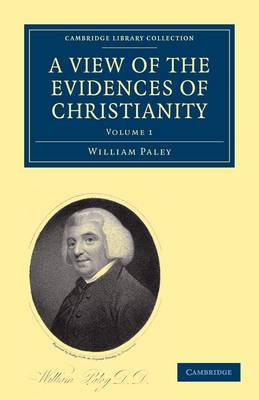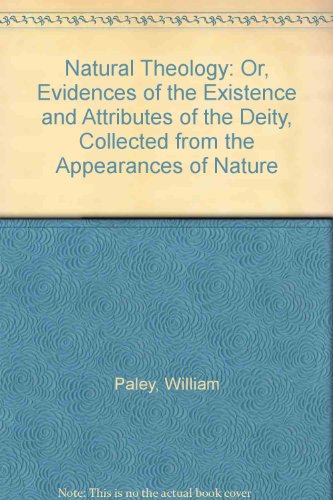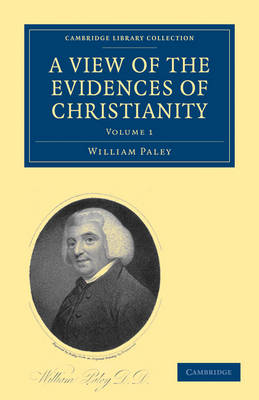Cambridge Library Collection - Science and Religion
1 primary work • 3 total works
Volume 1
This two-volume book by the philosopher and theologian William Paley, published in 1794, was considered so important that it was required reading for Cambridge students (including Charles Darwin) well into the nineteenth century. This classic work of apologetics is divided into three parts in which Paley discusses the historical evidence for Christianity and the miracles of Jesus Christ. He begins volume 1 with the proposition that the original witnesses to Christ's miracles should be believed, because they spent their entire lives in constant danger for what they witnessed. Paley takes on Hume's argument that no miracle can be proved regardless of the amount of evidence with the observation that if one believes in God, then miracles should be expected. Paley's intellectual defence of Christianity was one of the most popular of the day, and his work is considered a direct forerunner of the contemporary theory of intelligent design.
'The consciousness of knowing little, need not beget a distrust of that which he does not know.' In Natural Theology William Paley set out to prove the existence of God from the evidence of the beauty and order of the natural world. Famously beginning by comparing the world to a watch, whose design is self-evident, he goes on to provide examples from biology, anatomy, and astronomy in order to demonstrate the intricacy and ingenuity of design that could only come from a wise and benevolent deity. Paley's legalistic approach and skilful use of metaphor and analogy were hugely successful, and equally controversial. Charles Darwin, whose investigations led to very different conclusions in the Origin of Species, was greatly influenced by the book's cumulative structure and accessible style. This edition reprints the original text of 1802, and sets the book in the context of the theological, philosophical, and scientific debates of the nineteenth century.
A View of the Evidences of Christianity 2 Volume Paperback Set
by William Paley
Published 24 September 2009
This two-volume set by the philosopher and theologian William Paley, published in 1794, was considered so important that it was required reading for Cambridge students (including Charles Darwin) well into the nineteenth century. This classic work of apologetics discusses the primary and secondary historical evidence for Christianity, the miracles of Jesus Christ, the candour of the New Testament writers, the differences between Islam and Christianity, and popular objections to the truth of Christianity. Paley's intellectual defence of Christianity was one of the most popular of his day, and as such was central to the debates on evolution, science and religion of the Victorian period. His work anticipates parts of the contemporary theory of intelligent design, and is of interest to historians of theology, philosophy and science.


